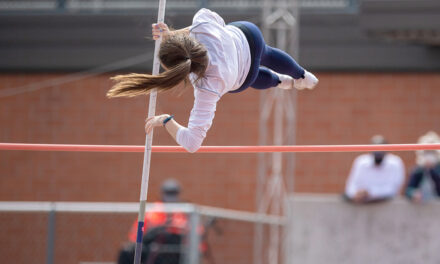High school sports are about more than physical activity, they serve as incubators of character, discipline, and future success. While the focus often leans toward physical performance, academic success is a critical part of being a student-athlete. Athletic directors, especially, have a unique opportunity to foster this balance and ensure their athletes are not just champions on the field but also achievers in the classroom.
The Importance of Academic Incentives in Athletics
Athletics and academics should work in harmony to nurture students holistically. For many high school athletes, the skills they develop through sports—discipline, teamwork, and goal-setting—translate seamlessly into academic success. However, the demanding schedules of student-athletes make it challenging to spend time on their studies.
Establishing a culture where academics are prioritized beyond athletics benefits not only the athletes but also the reputation of the entire school. Academic success opens doors to college scholarships, career opportunities, and lifelong personal growth. For athletic directors, promoting this balance is an important part of shaping student-athletes into leaders on and off the field.
Strategies to Promote Academic Success
1. Celebrate Academic Achievements
Publicly acknowledging academic accomplishments is a proven motivator for students. Programs like “Scholar-Athlete of the Month” or annual banquets dedicated to academic excellence reward athletes who work hard in the classroom and inspire others to do the same. Social media shoutouts and halftime announcements during games can be used to further acknowledge academic success, creating role models within the team. Awards, certificates, or even scholarships also serve as tangible reminders that academic effort is valued just as much as athletic performance.
2. GPA Benchmarks for Participation
Establishing GPA requirements for team eligibility makes athletes accountable to maintain their academic standing. A policy requiring a minimum GPA—such as 2.5 for varsity players—emphasizes the significance of education and sets clear expectations. For struggling students, providing support rather than penalties encourages them to meet these requirements.
3. Dedicated Tutoring Support
Some athletes might need tailored academic support to succeed amidst their packed schedules. Collaborating with school staff or external organizations to provide tutoring programs makes a substantial difference. Tutoring programs not only improve grades but also signal to students that their academic growth is a priority within the athletics department.
4. Peer Mentorship Opportunities
Peer mentorship programs pair younger athletes with academically successful upperclassmen. Younger students often look up to their older peers, making these relationships particularly impactful. This strategy fosters camaraderie within teams while helping students develop both academically and personally.
5. Linking Academic Performance to College Recruitment
For many high school athletes, college scholarships and recruitment opportunities are the ultimate goal. Educating athletes on the academic requirements for scholarships not only encourages academic diligence but also provides valuable information about navigating college admissions. Sharing real-life examples of student-athletes who secured scholarships through academic and athletic excellence can also influence others to follow suit.
Supporting an Academic Environment
1. Time Management Skills
Balancing sports, school, and personal life can be a struggle for student-athletes. Using planners, setting goals, and breaking assignments into manageable chunks can help athletes accomplish tasks. Athletes who master time management often see improvements in both their academic and athletic performance.
2. Athlete Study Halls
Designated study halls provide a structured environment where athletes can focus on their academics. Held before or after practices, these sessions ensure that students have dedicated time for schoolwork. Equipping study halls with resources like computers and tutors reinforces the program’s commitment to academic success.
3. Involving Parents
Parents play a pivotal role in shaping student-athletes’ attitudes toward academics. Keeping parents informed about academic expectations and providing resources to support their children can create a collaborative approach to success. Regular GPA updates, progress reports, and workshops for parents ensures everyone is aligned in prioritizing academics. When parents and coaches work together, student-athletes benefit from a unified support system.
Holistic Development and Lasting Impact
When athletic programs emphasize academics, the benefits extend far beyond the classroom. Athletes who achieve academic success develop critical life skills, such as perseverance, time management, and self-discipline. These traits not only prepare them for college and careers but also make them well-rounded individuals.
Schools with strong academic incentive programs often see higher graduation rates, improved college placements, and enhanced community support for their athletic programs. By fostering a culture that values both education and athletics, athletic directors can create a legacy of excellence.
Promoting academic success among athletes is not just a responsibility—it’s an opportunity. By implementing these strategies and building a supportive environment, athletic directors can inspire their athletes to excel in every aspect of their lives, proving that champions are made not just on the field but in the classroom as well.










